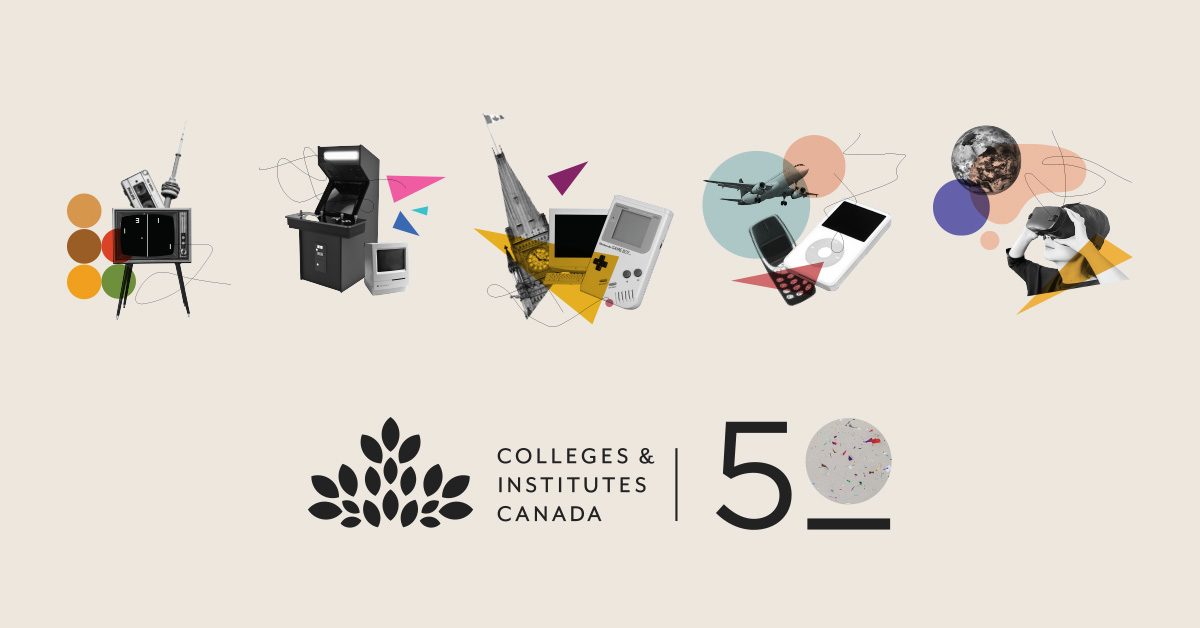By Denise Amyot, President and CEO, Colleges and Institutes Canada
Fifty years ago, colleges and institutes from across Canada decided to join forces and give themselves the means to speak with one voice at the national level. Though anchored in their communities, they knew they had much to gain by working together and ensuring the college system as a whole could make itself heard.
These were, for the most part, very young institutions, most of them just a few years old. Many were created in the sixties or obtained renewed mandates in an effort to make education accessible to all and meet the needs of a rapidly changing labour market.
It was a time of social and economic upheaval. A time of big questions, and big opportunities, when innovative solutions aimed at creating a fairer society were put forward that would generate real progress. Canada’s colleges and institutes were key players in the movement.
Their mandate was truly groundbreaking, delivering hands-on technical and professional education on a scale that had never been seen before while focusing on local needs in service of their local communities. It was truly an effort to democratize education that would have far-reaching implications, contributing to the creation of what we know today as the middle class. All this to support the booming post-war economy requiring a skilled workforce to fuel new industries.
These new institutions found great success, and reach. Between the 1960s and early 1970s, the college system dramatically expanded across the entire country. Ambitious provincial networks were created, but by 1970, it became clear that they also needed a national voice to better represent them and help them grow.
This led to the foundation of the Association of Canadian Community Colleges, later to be known as Colleges and Institutes Canada, officially constituted in 1972.
Fifty years later, a lot has changed, including our members. They are modern institutions that offer cutting-edge training opportunities, support innovation and offer a wide variety of credentials, including degrees, post-graduate certificates and micro-credentials. But in many ways, Canada is again faced with similar opportunities in the context of big changes.
New technologies and practices continue to transform the world of work at incredible speeds. In fact, it could be argued that the labour market hasn’t seen such dramatic change since the post-war period. The jobs of tomorrow, post-pandemic, will look dramatically different from those of just a few years ago.
At the same time, global movements, literally and figuratively, are forcing us to rethink how we engage with others and how we come to terms with engrained biases and discrimination within our society. Equity, diversity and inclusion are not new concepts, but it is time we commit to them fully. Reconciliation with Indigenous communities is another top priority for individuals and institutions and there is a lot left to do. Our post-secondary system must once again prove that it can grow and evolve to meet the shifting needs of learners, employers, and communities.
No matter where the needs arise, CICan will continue its work to support and represent Canada’s colleges and institutes. Our phenomenal growth over the past fifty years has clearly shown the positive impact we can have, and there is a lot more where that came from.
Now, as we embark on a year of celebration to mark our proud history, we also want to look ahead. That’s where you come in.
We are calling on our members, partners, students, graduates, and friends to join us in reflecting about how far we have come and where we are heading. We want to hear your stories, and are committed to sharing texts, articles, and op-eds throughout this anniversary year to showcase different perspectives on the future of work, education, research, innovation, reconciliation, inclusion and collaboration, among others.
You can learn more about how you can contribute to this project here.
We look forward to hearing from you!

